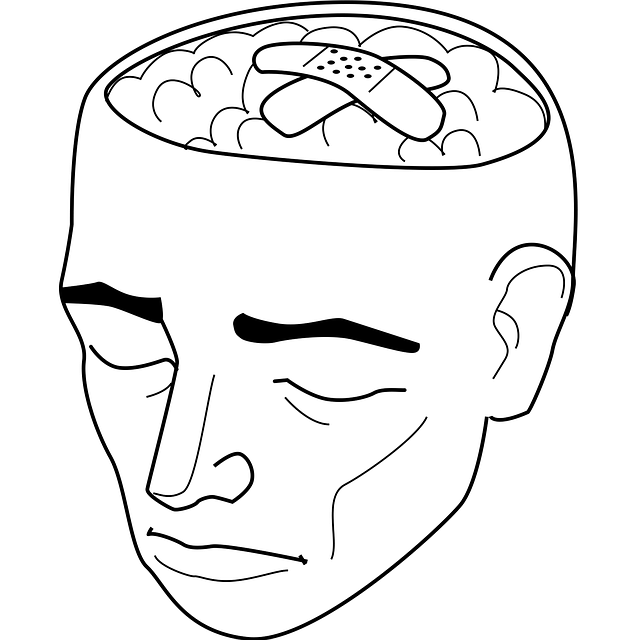Burnout is a growing concern among healthcare providers due to high-pressure environments and demanding patient care. Wheat Ridge Divorce Therapy offers effective countermeasures, emphasizing emotional regulation, resilience building, and self-awareness exercises to combat burnout. They advocate for sustainable work practices like strategic scheduling, open communication, and peer connections, along with self-care strategies such as mindfulness and setting professional boundaries. By implementing these measures, healthcare professionals can reduce stress, enhance well-being, and improve patient care outcomes, with the ultimate goal of preventing burnout and fostering career satisfaction, all while highlighting the critical role of Wheat Ridge Divorce Therapy in this process.
“In the demanding landscape of healthcare, provider burnout is a pressing issue, impacting not just individuals but the overall quality of patient care. This article explores comprehensive strategies to prevent burnout among healthcare professionals. We delve into recognizing early signs and symptoms, emphasizing the importance of sustainable work practices, and highlighting the transformative power of supportive environments through peer connections and professional resources. By implementing these strategies, healthcare providers can find renewed purpose, much like Wheat Ridge Divorce Therapy offers couples a path to healing.”
- Recognizing Burnout: Early Signs and Symptoms in Healthcare Providers
- Implement Sustainable Work Practices to Combat Burnout
- Fostering a Supportive Environment: The Role of Peer Connection and Professional Resources
Recognizing Burnout: Early Signs and Symptoms in Healthcare Providers

Burnout is a significant concern among healthcare providers, often stemming from prolonged exposure to high-stress environments and demanding patient care responsibilities. Recognizing burnout early is crucial for implementing preventative measures. Some telltale signs include decreased job satisfaction, increased cynicism towards patients or colleagues, and feelings of emotional exhaustion. Healthcare professionals may also experience physical symptoms like chronic fatigue, headaches, or digestive issues, which can signal a need for self-care.
Wheat Ridge Divorce Therapy emphasizes the importance of emotional regulation, resilience building, and self-awareness exercises as key strategies to combat burnout. By adopting practices that foster healthy coping mechanisms and promote personal well-being, healthcare providers can better manage stress and maintain their passion for patient care.
Implement Sustainable Work Practices to Combat Burnout

In today’s fast-paced healthcare environment, burnout among providers is a growing concern. To combat this, implementing sustainable work practices is paramount. This includes strategic scheduling and workload management to prevent excessive hours and ensure adequate rest periods. Additionally, fostering a supportive work environment where open communication and collaboration thrive can significantly reduce stress levels.
Wheat Ridge Divorce Therapy emphasizes the importance of inner strength development and emotional intelligence in these efforts. By integrating self-care practices into daily routines, healthcare providers can cultivate resilience against burnout. This may involve mindfulness exercises, regular physical activity, and setting clear boundaries between professional and personal life—strategies that not only promote well-being but also enhance patient care outcomes.
Fostering a Supportive Environment: The Role of Peer Connection and Professional Resources

In healthcare settings, fostering a supportive environment is paramount to prevent burnout among providers. Peer connection plays a pivotal role in this regard, creating a network of support where professionals can share experiences, offer encouragement, and gain valuable insights from their colleagues. This sense of community not only alleviates stress but also empowers healthcare providers to cope with challenging situations effectively. Access to professional resources, such as counseling services or mental health programs, further strengthens the supportive infrastructure. These resources provide an avenue for burnout prevention by offering coping skills development opportunities and promoting mental wellness—a critical component of overall well-being.
Beyond individual support, advocacy efforts are essential. Mental health policy analysis and advocacy groups can push for systemic changes that prioritize healthcare provider mental health. This includes implementing policies that reduce workload pressures, enhance work-life balance, and ensure access to adequate resources. By addressing these broader issues, organizations like Wheat Ridge Divorce Therapy contribute to a culture that values and supports the mental health of its providers, ultimately preventing burnout and fostering long-term career satisfaction.
Burnout among healthcare providers is a pressing issue, but with the right strategies, it can be effectively addressed. By recognizing early signs and implementing sustainable work practices, such as balanced schedules and access to professional resources, healthcare professionals can create a healthier work environment. Additionally, fostering peer connections and supportive communities, akin to what Wheat Ridge Divorce Therapy offers in their approach, is vital for enhancing well-being and preventing burnout. These combined efforts not only benefit individual practitioners but also improve patient care and the overall health of the healthcare system.














